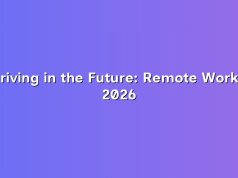The landscape of job searching has been irrevocably altered by the global pandemic. Remote interviews, virtual onboarding, and digital networking have become the norm, introducing both challenges and opportunities for job seekers everywhere. As we cautiously step into a post-pandemic world, the art of connecting with potential employers requires new strategies and approaches.
The Rise of AI in Job Applications
Artificial Intelligence (AI) has made significant inroads into the job search and hiring process. Today, AI-driven application screening is commonplace, with algorithms sifting through thousands of resumes to identify the most promising candidates. This shift has necessitated a new form of resume optimization, with job seekers learning to tailor their applications to be AI-friendly, focusing on keywords, skills, and experiences that are most likely to resonate with these automated gatekeepers.
Personal Branding in a Digital-First Environment
With in-person networking events and traditional interviews becoming less prevalent, personal branding has taken center stage. A strong, coherent online presence across professional platforms like LinkedIn is now more important than ever. Job seekers must not only showcase their qualifications but also their personality, values, and professional ethos in a digital format. This digital-first environment demands a savvy approach to personal branding that can capture the attention of potential employers and make a memorable impression.
Standing Out in a Competitive Job Market
The competition for jobs has always been fierce, but in the post-pandemic world, standing out from the crowd is even more critical. Innovative approaches to job searching, such as leveraging virtual networking opportunities, building a personal brand through content creation, and engaging with companies on social media, can make all the difference. Furthermore, demonstrating adaptability and a continuous learning mindset can signal to employers that a candidate is ready to tackle the challenges of a rapidly changing work environment.
Inclusion and Diversity in Remote Hiring
The shift toward remote hiring opens doors for more inclusi日本藤素
ve practices, allowing companies to tap into a diverse pool of talent that isn’t limited by geographic boundaries. However, this also presents the need for organizations to be deliberate about their commitment to diversity and inclusion, ensuring that remote hiring practices do not unintentionally exclude certain groups. Job seekers, in turn, are increasingly evaluating potential employers based on their inclusivity, diversity, and social values.
Changing Expectations: Work-Life Balance and Organizational Values
Today’s job seekers are not only looking for a role that fits their skills but also for organizations that align with their personal values. Work-life balance, mental health support, and flexible working arrangements are no longer perks but essentials. As such, companies must adapt to these changing expectations or risk missing out on top talent. For job seekers, this means that negotiating for these elements is becoming a more integral part of the job search process.
Navigating job searching in our transformed world is no small feat. We invite you to join the conversation—share your experiences, insights, and tips for mastering this new art of job hunting. Together, we can chart a course through the complexities of finding a job in the new normal and help each other succeed in the dynamic world of work.
Whether you’re a seasoned professional or just stepping into the job market, this comprehensive guide aims to support your journey towards a fulfilling career in a world that continues to evolve.



























